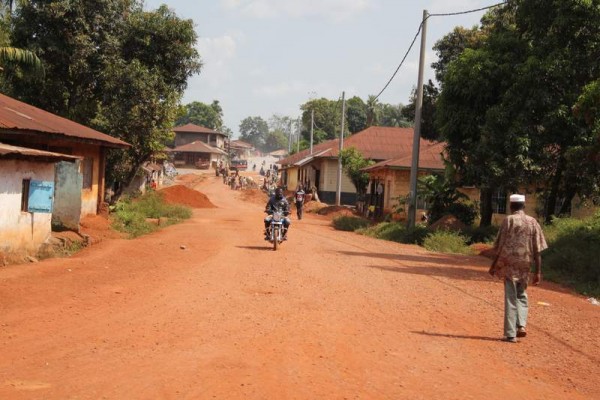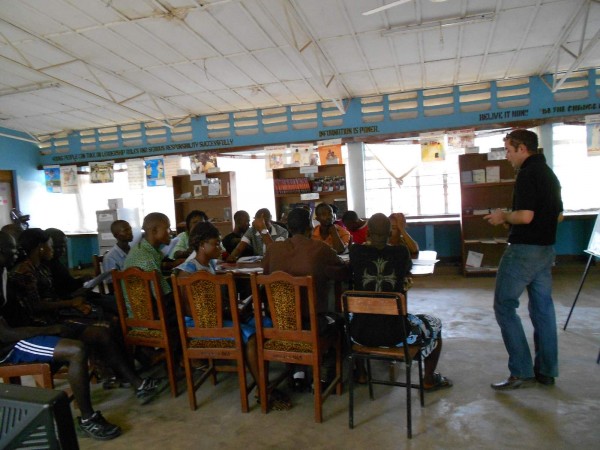 Fatuma is a talented local carpenter in Makeni, Sierra Leone. His work is extremely popular but his workshop space is small and lacks proper cover, making work in the rainy season very difficult. He also lacks some basic equipment that could help his business to grow. Fatuma does not want a hand out, he wants a microloan that will give him a small cash injection to expand his business.
Fatuma is a talented local carpenter in Makeni, Sierra Leone. His work is extremely popular but his workshop space is small and lacks proper cover, making work in the rainy season very difficult. He also lacks some basic equipment that could help his business to grow. Fatuma does not want a hand out, he wants a microloan that will give him a small cash injection to expand his business.
Microfinance as a concept has been around since the 1970’s. It aims to reverse the age-old vicious circle of low income, low saving and low investment, into a virtuous circle of “low income, injection of credit, investment, more income, more savings, more investment, more income.”
In its most basic and earliest form, microcredit is a single-development intervention, with loans being the sole service provided by a non-governmental organization (NGO) or bank. When microfinance began, the extension of financial services to the poor was truly radical. For the first time, conventional financial tools were made available to populations that were previously denied such access and were often blatantly discriminated against. The concept has since rapidly evolved and expanded. In 2007, 3,500 Microfinance Institutes reported that they were reaching nearly 155 million clients. According to a CGAP survey in the same year, nearly US$12 billion was committed by donors in support of microfinance.

Despite the development of microfinance, Fatuma currently does not qualify for a loan because he is illiterate and has not been keeping records of his accounts. He knows his trade and how to run the rest of his business inside out, but he is lacking the business training to qualify for a loan.
Capacity building organization The Collective – Sierra Leone has partnered with Salone Microfinance Trust (SMT) to try and change this. They are bringing talented professionals on a career break to Makeni to train and mentor clients like Fatuma so they can gain access to finance. Volunteers work alongside local staff to deliver a training program to provide skills such a basic book keeping and quality control. Once the loans have been awarded, they will provide a mentoring service so these can be best utilized. Volunteers will work closely with loan officers to ensure that these services can be provided long after their departure. By collaborating with SMT on this pioneering new mentoring and training program, The Collective – Sierra Leone is utilizing the skills of professionals around the world who want to make a positive change. This will expand SMT’s services beyond being just a loan provider, increase their potential client base and reduce the likelihood of people defaulting on their loans.

Volunteering with a microfinance organization provides the perfect opportunity for career breakers to step out of their comfort zone while still utilizing the skills they have gained in the workplace. Projects can give volunteers the chance to meet small business owners, and provide training and mentoring to help their business grow. You do not have to be an ex-finance director to be successful either. Our current microfinance volunteer believes that the ideal candidate should have a banker’s brain and a social workers heart. The most important thing is to have empathy and understand the client’s problems which are often personal rather than financial. A successful microfinance project can also provide invaluable transferable skills and assist you in a change in career path. It will show future employers that you are willing to do something out of the ordinary and are capable of thinking outside the box in a totally different environment.
A career break is about stepping out of your comfort zone to experience life from a different perspective and rediscover what makes you happy. But you often find out most about yourself when you set out to help others. A career break is a chance to utilize your professional skills in a place where you can really make a difference and give people like Fatuma the chance to build a business and support his family.
For more information on microfinance or to learn how you can support business owners like Fatuma, visit www.thecollectivesl.co.uk.






